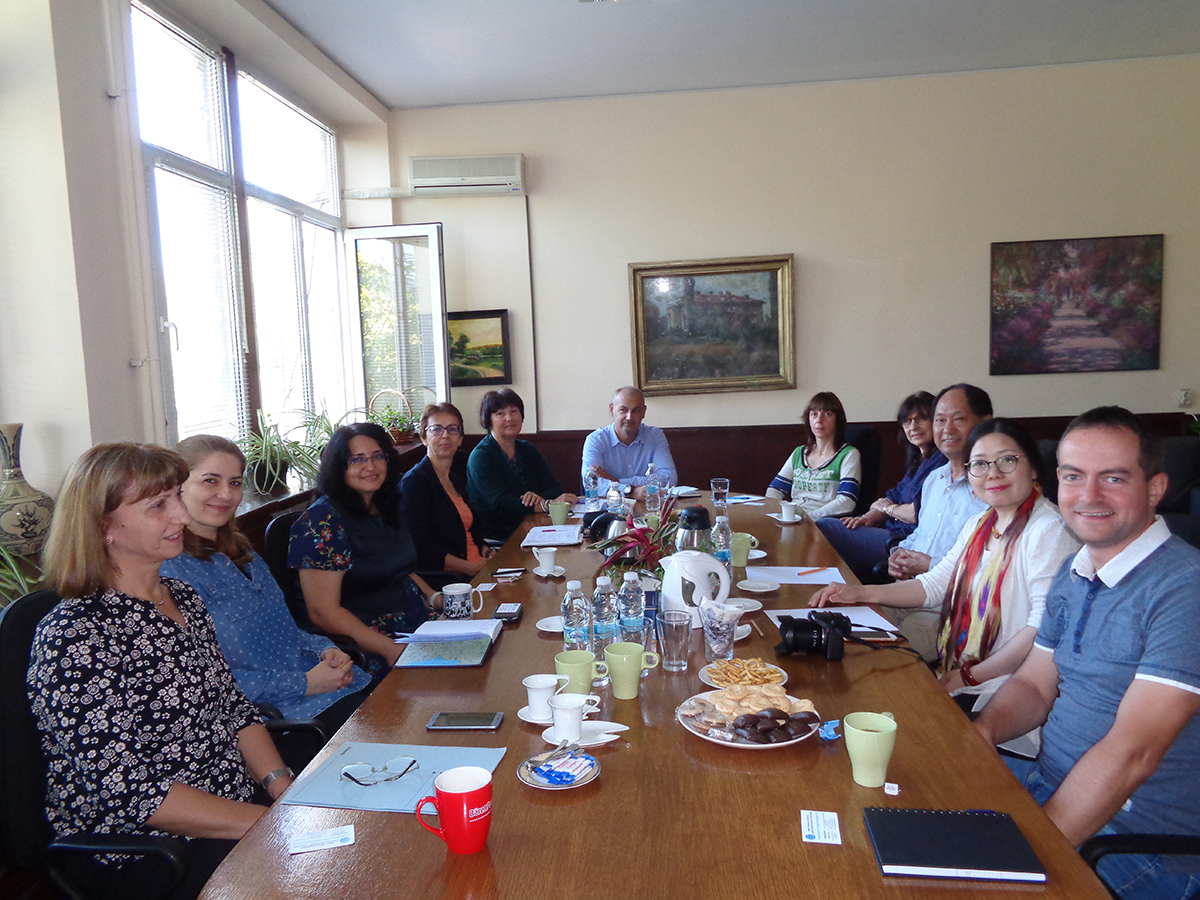Events
The Institute of Plant Physiology and Genetics, BAS has become a representative node for Bulgaria of the International Barcode of Life (iBOL) Consortium
The Institute of Plant Physiology and Genetics, Bulgarian Academy of Sciences has become a node for Bulgaria of the International Barcode of Life (iBOL) Consortium with Dr. Georgi Bonchev as a representative member in the Science Committee of iBOL. The affiliation of IPPG to the Consortium is an outcome of the activities within the frame of the BULCode project aimed at the promotion of biodiversity studies in Bulgaria through DNA barcoding technologies and the creation of collaboration networks worldwide.
Established in 2008, the International Barcode of Life consortium ( https://ibol.org/) is a research alliance of more than 40 nations undertaking the largest biodiversity science initiative: explore biodiversity by developing globally accessible, DNA based systems for the discovery and identification of all multicellular life and to create and develop a digital identification system for life that is accessible to everyone.
29-01-2021
Online Introduction Workshop on DNA barcoding – 29-01-2021, 09:00-16:00 h
 The event is organized in the frame of the project BULCode „Fostering plant biodiversity research capacity in Bulgaria through scientific excellence in DNA barcoding and metabarcoding”, National program „European Scientific Networks“, Ministry of Education and Science, 2020-2022
The event is organized in the frame of the project BULCode „Fostering plant biodiversity research capacity in Bulgaria through scientific excellence in DNA barcoding and metabarcoding”, National program „European Scientific Networks“, Ministry of Education and Science, 2020-2022
Organizers:
Institute of Plant Physiology and Genetics, BAS
University of Helsinki, Department of Agricultural Sciences
The Introduction workshop on DNA barcoding will be at a “beginner” level and will follow the goal to make participants familiar with the DNA barcoding technology – project design, molecular experiments, data analyses and practical applications. Experts in DNA barcoding from the University of Helsinki will comprise the teaching body of the workshop. The event will also contain three Hands on excercise sessions. During those, participants, guided by teachers, will have the opportunity to access BOLD (the Barcoding of Life Databases) and other web sites and to do small tasks. Active participation of all attendees in proposed tasks and discussions is very welcome in order to make the workshop as much fruitful as possible.
People sharing strong interest in the field of DNA barcoding for species genetic identification and wishing to know more about its various practical applications are welcome to attend the workshop.
20-09-2018
Scientists from IPPG have met with representatives of Xinjiang Institute of Ecology and Geography at the Chinese Academy of Sciences (CAS)
Scientists from the Institute of Plant Physiology and Genetics – Bulgarian Academy of Sciences met with representatives of Xinjiang Institute of Ecology and Geography at the Chinese Academy of Sciences (CAS), Urumqi, China. The Chinese delegation was represented by Professor Guan Kaiyun, Deputy Director and Dr. Qiao Jianfang, Deputy Head of International Cooperation at the Institute of Ecology and Geography. Both sides presented their research and scientific equipment and discussed the possibilities for cooperation in the field of sustainable agriculture, plant biochemistry, molecular biology, physiology and genetics.
The guests from China gave an overview of existing collaborative programs of the Chinese Academy of Sciences, in particular, on PIFI projects, which provide an excellent platform for exchange and working visits of foreign scientists to CAS institutes. Both sides approved the text of “LETTER of INTENT” between Xinjiang Institute of Ecology and Geography-CAS, and IPPG of the Bulgarian Academy of Sciences.
16-07-2018
Responsible Research and Innovations (RRI) were presented at IPPG by a leading Spanish R&D centre’s manager
On July 10th 2018, a seminar entitled “Excellence in research through Responsible Research and Innovations (RRI) was held at the Institute of Plant Physiology and Genetics (IPPG), Bulgarian Academy of Sciences. The event was organized by Assist. Prof. Georgi Bonchev, head of the research unit “Laboratory of Genome Dynamics and Stability” at IPPG. A presentation on the topic above was given by Dr. Antonia Bierwirth, who is a project manager at Tecnalia, a leading R&D centre in Spain. The lecturer is also a leader of a working group within the Horizon 2020 project NewHoRRIzon with the objective to share expertise and to promote best practices of Responsible Research and Innovation (RRI). The RRI are aimed at the development of collaboration networks between researchers, citizens, business stakeholders and educational institutions with the ultimate goal to strengthen the research and innovation process and to better align it with the values, needs and expectations of the society. The concepts of RRI as well as its priority axes such as respect of ethical standards, gender equality and open and transparent science were thoroughly explained during the event. Perspectives for future collaboration and transfer of knowledge between Tecnalia and the Institute were outlined at a follow-up work meeting of Dr. Bierwirth with representatives of the administration and researchers of IPPG with the objective to implement in the near future RRI practices in the Institute of Plant Physiology and Genetics.
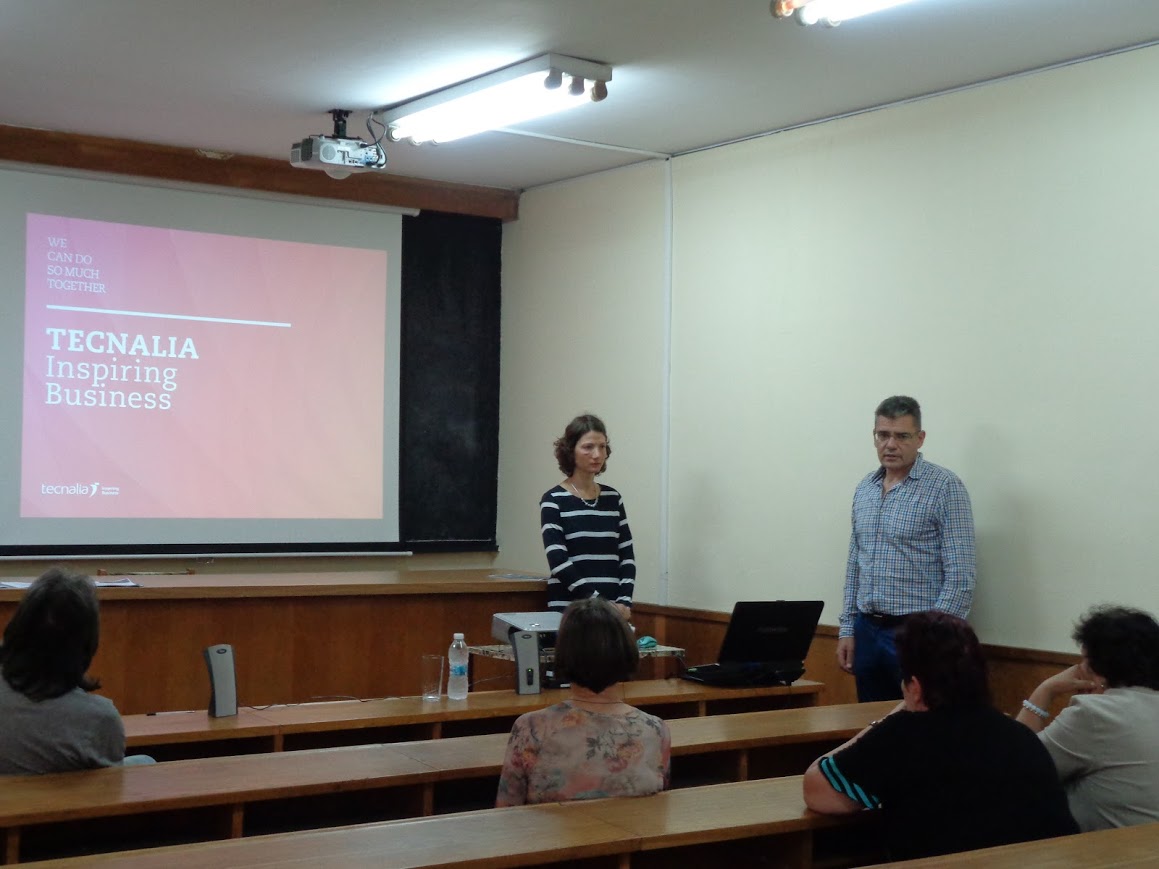 |
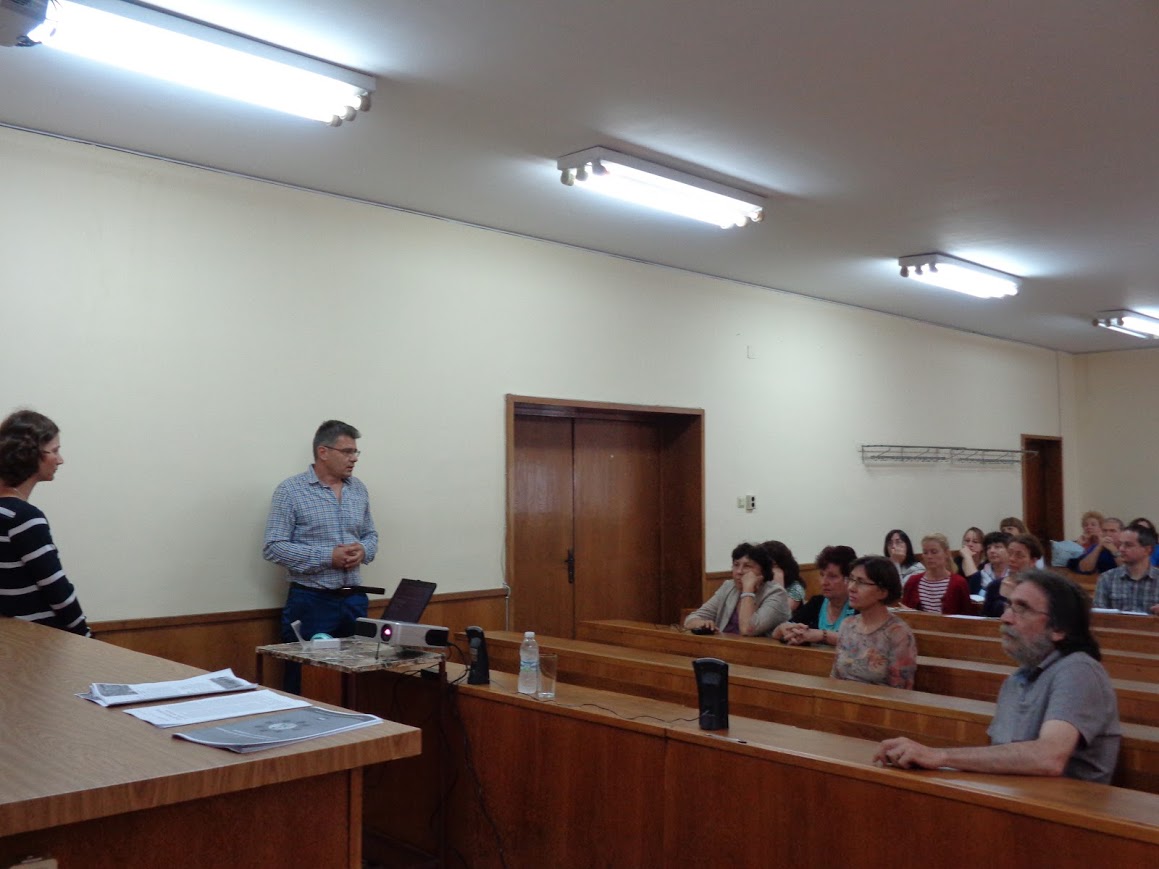 |
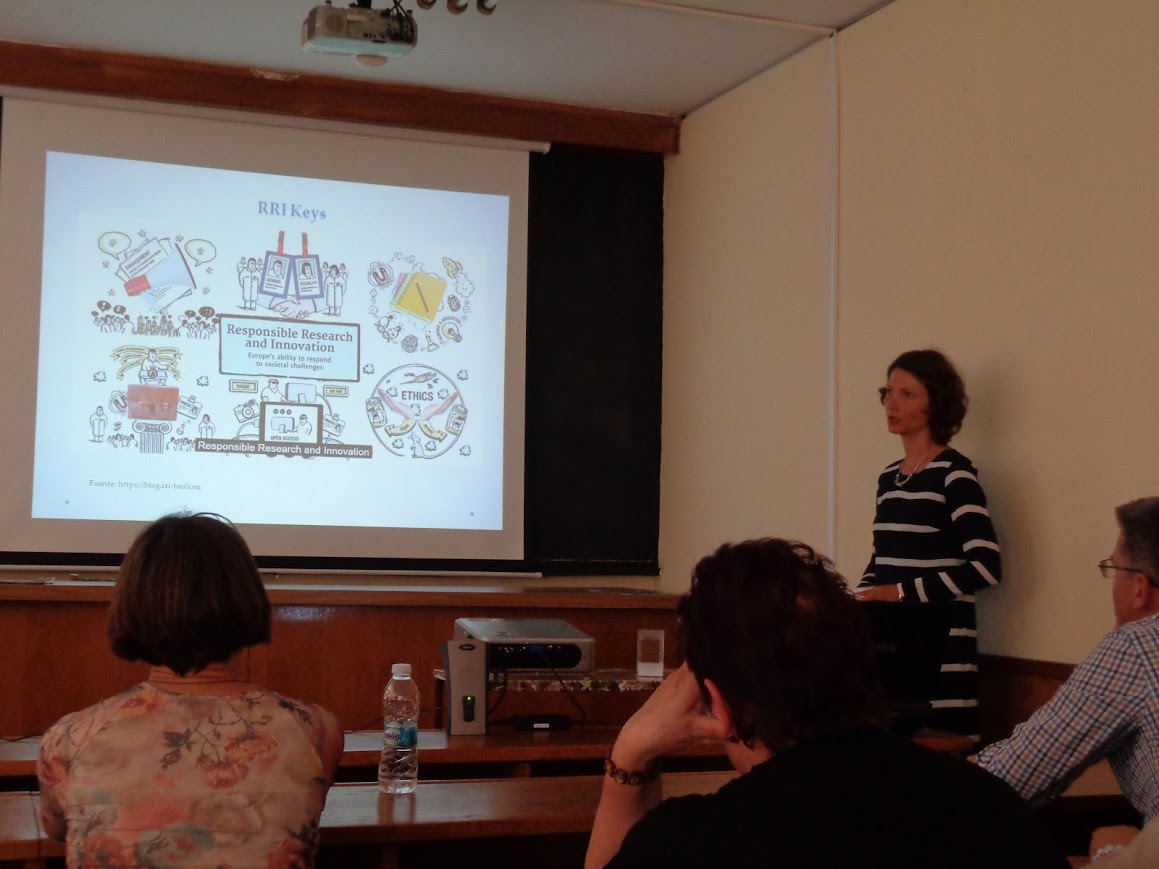 |
06-09-2017
On the 5th and 6th of September 2017, the first workshop within the COST action CA15226 Climate Smart Forestry (CLIMO) was held in the meeting room of the Central Building of the Bulgarian Academy of Sciences. The organizer of the event was Prof. Violeta Velikova from the Institute of Plant Physiology and Genetics at the Bulgarian Academy of Sciences, who is the leader of Working Group 1 “Climate Smart Forestry Approaches and Definitions”. The meeting was attended by scientists from Germany, Italy, Great Britain, Poland and Bulgaria. During the meeting a concept of climate-smart forestry (CSF) was discussed, initial working definition of CSF in mountain regions, as well as tables with criteria and measurable indicators wеre produced.
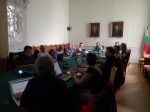 |
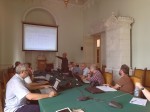 |
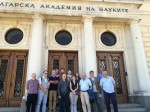 |
